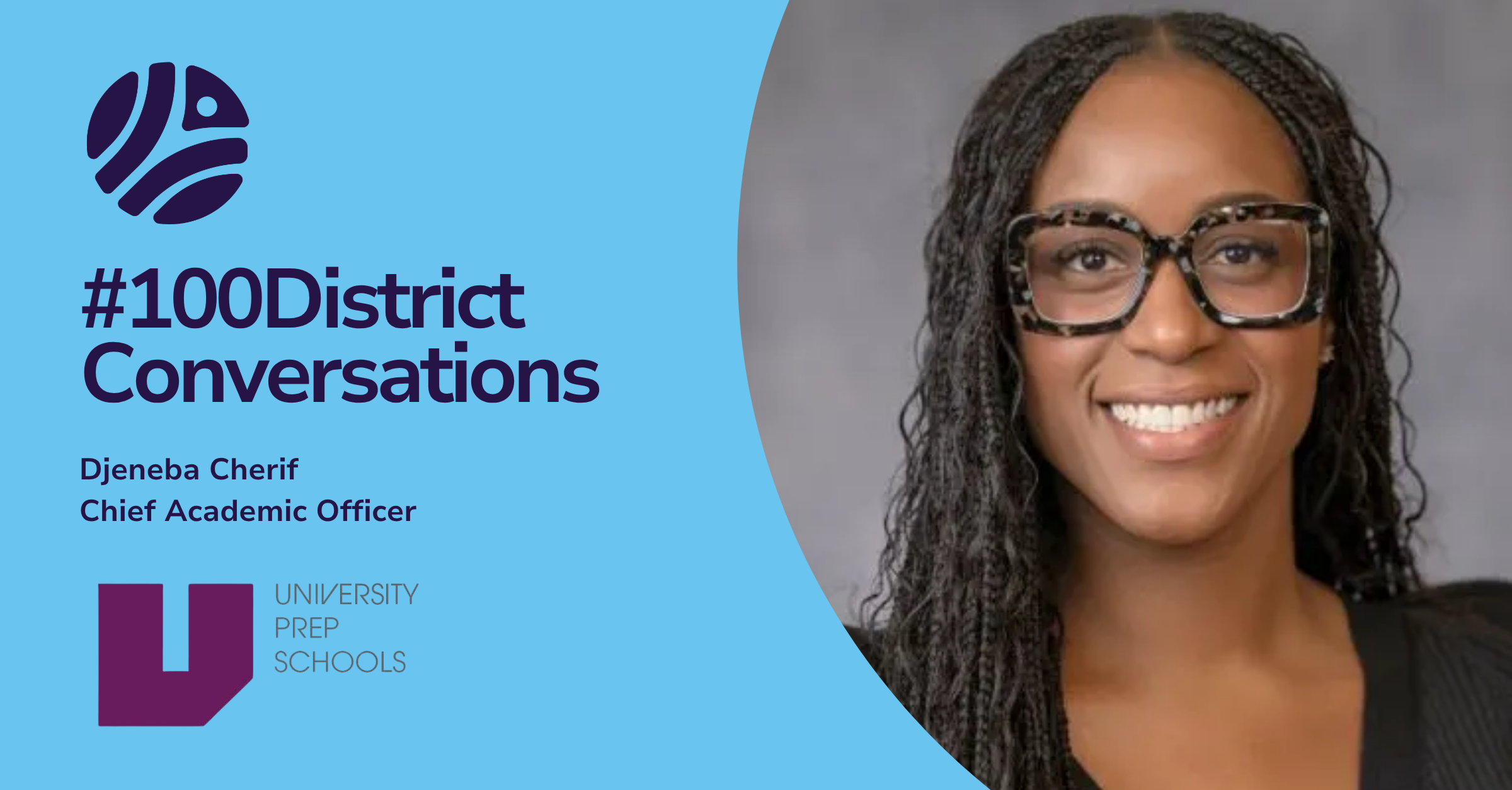#68 Djeneba Cherif

#100DistrictConversations rolls on with Djeneba Cherif, Chief Academic Officer at University Prep Schools in Michigan. Conversation #68 shows just how intentional and empowering a coherent teacher professional learning strategy can be. I am grateful to AASA magazine for sharing Djeneba's approach with an article their October issue.
"I have learned that a teaching certificate alone does not guarantee that 80% of our students will hit proficiency. Impacts from the pandemic and teacher shortages do not deter us from having high expectations for learning acceleration. However, these challenges did push us to fundamentally shift our approach. We rebuilt our professional development model across our network. The new model is competency-based and driven by data.
Now, a novice teacher and a 20-year veteran might sit together in the same workshop centered on Grade 5 fractions instruction, because they are both working on the same challenges. This eliminated the 'why am I in the same learning space as a substitute' positional power mentality that was holding us back. Teachers showing strong results on assessments lead sessions for their peers. Superstar teachers become network teacher leaders; their classrooms are labs where other educators can observe and ask probing questions in real time.
Each month, we hold Network PD, customized by needs across our 10 schools, which tend to be very different. School leaders submit agendas to their curriculum leaders at the network level one and a half weeks in advance. If we determine the learning strategies cannot be 'turnkey' for teachers by the next day, it is too high level.
The Campus Instructional Leadership Team, consisting of principals, assistant principals, and teacher leaders, meets weekly to examine student work against rubrics, identifying effective teacher moves from our observations. We can then make informed decisions to elevate teachers as coaches or coachees. With 28% of our teachers uncertified, this targeted approach is essential. Principals and assistant principals, along with network leaders, meet twice a month as their own Professional Learning Community. They raise challenges to each other, see who else is facing similar issues, and discuss who could facilitate a session to support their staff (i.e., central office person, building leader, teacher with relevant expertise, or external provider).
Our 4-pillar academic model drives everything. We use a researched-based curriculum grounded in culturally responsive teaching (WHAT we teach) with Project-Based Learning as the HOW, making content tangible and meaningful for students. Our CREW model builds a sense of belonging and community, because students who do not feel known and cared for by their teachers are unlikely to engage with rigorous work.
Our Distributed Leadership model builds capacity and shared ownership. We stopped treating professional development as something that happens to teachers and started building it as something that happens through them. The result is a network where expertise flows in every direction, and student learning accelerates because of it."
If you're a district leader or know of a district leader who should be featured in the #100DistrictConversations initiative, please use this nomination form.
